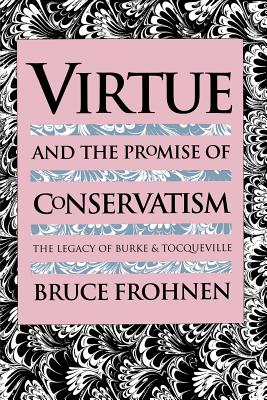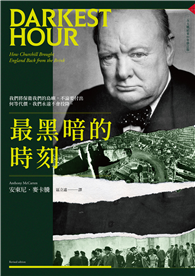Often loud and acrimonious, the public tug-of-war between a reinvigorated conservatism and a liberalism in apparent disarray has obscured an equally important competition-that among conservatives themselves.
In Virtue and the Promise of Conservatism, Bruce Frohnen joins the fray in an effort to rescue the essence of conservative virtue from rationalists and materialists of whatever political stripe. He argues that we have "lost and must attempt to regain the conservative good life and the outlook which made it possible." The tools needed to do that, according to Frohnen, are humility and--yes--political action aimed at combatting the centralizing and materialistic structures and beliefs interfering with the formation and retention of family, church, and neighborhood. Drawing deeply from the writings of Edmund Burke and Alexis de Tocqueville, both critics of untempered reason and "the drive toward a spiritually impoverished egalitarian materialism," Frohnen explores how their work has influenced individuals as diverse as traditionalist Russell Kirk, "apocalyptic" libertarian Michael Oakeshott, and neoconservative Irving Kristol. While differing greatly in their views and prescriptions, these contemporary conservatives, Frohnen shows, are nevertheless united in their desire to preserve the local community’s natural and fundamental institutions. This preservation, he argues, requires a renewed faith in and humble acceptance of the essential good contained within these institutions.| FindBook |
有 1 項符合
Virtue and the Promise of Conservatism: The Legacy of Burke and Tocqueville的圖書 |
 |
Virtue and the Promise of Conservatism: The Legacy of Burke and Tocqueville 作者:Frohnen 出版社:University Press of Kansas 出版日期:1993-01-30 語言:英文 規格:平裝 / 264頁 / 23.1 x 15.7 x 1.8 cm / 普通級 |
| 圖書館借閱 |
| 國家圖書館 | 全國圖書書目資訊網 | 國立公共資訊圖書館 | 電子書服務平台 | MetaCat 跨館整合查詢 |
| 臺北市立圖書館 | 新北市立圖書館 | 基隆市公共圖書館 | 桃園市立圖書館 | 新竹縣公共圖書館 |
| 苗栗縣立圖書館 | 臺中市立圖書館 | 彰化縣公共圖書館 | 南投縣文化局 | 雲林縣公共圖書館 |
| 嘉義縣圖書館 | 臺南市立圖書館 | 高雄市立圖書館 | 屏東縣公共圖書館 | 宜蘭縣公共圖書館 |
| 花蓮縣文化局 | 臺東縣文化處 |
|
|
圖書介紹 - 資料來源:博客來 評分:
圖書名稱:Virtue and the Promise of Conservatism: The Legacy of Burke and Tocqueville
|









